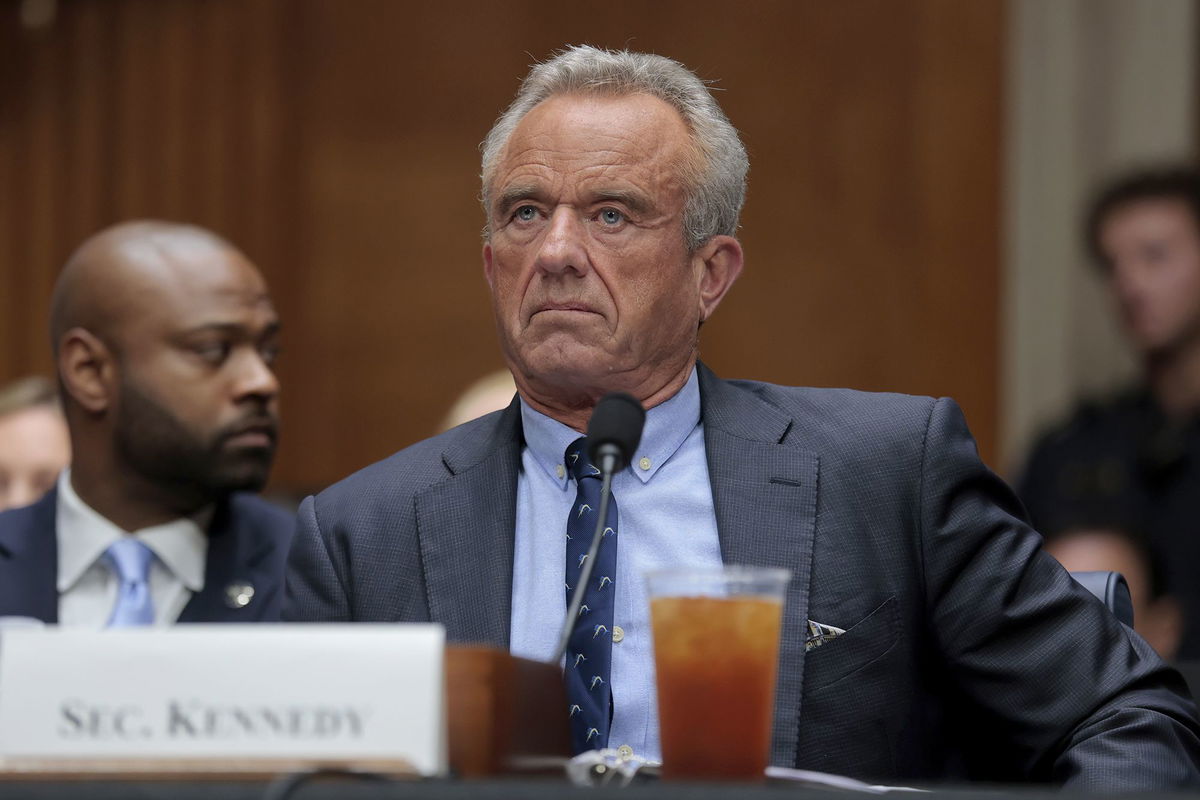By Sarah Owermohle, Meg Tirrell, CNN
(CNN) — In a significant development, Sen. Elizabeth Warren has embarked on a renewed inquiry into federal health officials’ controversial decision to dismiss over a dozen vaccine experts. This comes amid rising concerns surrounding an impending meeting that may challenge the integrity of Covid-19 and influenza vaccines.
On Tuesday, the Massachusetts Democrat sent a letter to US Health and Human Services (HHS) Secretary Robert F. Kennedy Jr., addressing the unexpected termination of 17 members from the Advisory Committee on Immunization Practices (ACIP) only to see eight new members appointed just two days afterward. This abrupt change has sparked alarm across party lines.
Adding to the urgency, Sen. Bill Cassidy, the committee’s top Republican, called for officials to delay the upcoming vaccine meeting. His concerns resonate with many who fear that the recent shake-up could further diminish public trust in the safety of vaccines.
During a hearing Tuesday morning, Kennedy appeared before the House Energy and Commerce health subcommittee to justify his administration’s proposed 2026 budget. The session quickly shifted focus, with committee Democrats pressing him on the integrity of his recent actions concerning ACIP.
Rep. Frank Pallone, the Democratic leader on the committee, expressed grave concerns over Kennedy’s dismissal of ACIP members, asserting that it undermines his earlier commitments made during the confirmation process regarding vaccine accessibility. Pallone called for Kennedy to return to the committee for an oversight hearing amidst what he termed the “unprecedented and troubling chaos” surrounding the vaccine advisory panel.
Kennedy defended his decision, claiming the dismissed committee members had conflicts of interest related to the pharmaceutical industry. He described the ACIP as “the template for medical malpractice,” asserting that the committee had failed to adequately scrutinize safety concerns related to vaccines.
However, the selection of replacements has raised eyebrows. Warren specifically pointed out that the eight new appointees come with their own sets of potential conflicts. Notably, their conflict of interest disclosures have yet to be uploaded to the CDC’s website, creating further opacity around their affiliations.
In her letter, Warren highlighted Dr. Robert Malone, known for advocating against mRNA vaccines and Covid-19 public health measures. She noted that his Substack platform reportedly earned about $31,200 a month at one point, raising serious conflict of interest concerns. Dr. Martin Kulldorff, another new appointee, is a longtime ally of NIH Director Dr. Jay Bhattacharya and co-author of the controversial Great Barrington Declaration advocating for relaxed lockdown measures for younger populations. Both have also acted as paid witnesses against vaccine manufacturers, amplifying questions regarding their impartiality on a vaccine advisory panel.
Warren did not stop there; she raised concerns about Dr. Vicky Pebsworth, affiliated with the vaccine-critical National Vaccine Information Center, and Dr. James Pagano, who appears to lack formal training in infectious disease or vaccinology.
Even the status of Dr. Michael Ross, another new ACIP member, drew scrutiny. Kennedy touted him as working with notable institutions, yet those universities confirmed to CNN that he had not been employed there for several years. His recent work has been in private equity and a biotech startup, which complicates his qualifications for the panel.
Warren accused Kennedy of “hand-picking” these new members to further an “anti-vaccine agenda.” She has previously raised concerns regarding Kennedy’s own conflicts of interest, particularly his financial interests in vaccine litigation, which Democratic senators claim are still “not fully resolved.” Kennedy has stated that he has transferred his interests related to HPV vaccine litigation to his adult son, a move criticized as inadequate by his Democratic colleagues.
The timing of Warren’s letter coincides with rising anxieties about ACIP’s upcoming meeting, set for Wednesday and Thursday. The agenda includes discussions around Covid-19 vaccines and a revived debate on thimerosal, a preservative utilized in multi-dose flu vials that has been largely eliminated from most vaccines decades ago due to concerns over its mercury content. Although research has since disproven the alleged link between thimerosal and neurodevelopmental issues such as autism, the subject remains controversial among certain segments of the public.
On Monday evening, Cassidy further amplified these concerns, stating that many of the new appointees lack experience with emerging technologies like mRNA vaccines and may harbor biases against them. He urged HHS to postpone the ACIP meeting until the panel is adequately staffed, emphasizing the need for “more robust and balanced representation — as required by law.”
The nature of these developments raises significant questions about the future direction of vaccine policy in the U.S. and the broader implications for public health.


